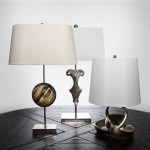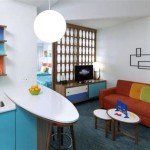Embarking on a Rewarding Career in Interior Decorating
Interior decorating is an alluring field that empowers individuals to transform living spaces into havens of comfort and beauty. Whether you are aspiring to start a career as an interior decorator or enhance your knowledge in the field, this article delves into the essential aspects of this fulfilling profession.
Educational Qualifications and Experience
While formal education is not a strict requirement to become an interior decorator, obtaining a design degree or certification can provide a solid foundation. Programs in interior design typically cover fundamental principles such as space planning, color theory, lighting design, and furniture selection.
Gaining practical experience through internships or apprenticeships is invaluable. These opportunities allow aspiring decorators to work alongside experienced professionals, develop their skills, and build their portfolios.
Essential Skills and Abilities
A successful interior decorator possesses a multifaceted set of skills that include:
- Artistic and Creative Vision: An ability to visualize and create aesthetically pleasing spaces.
- Technical Expertise: Knowledge of design principles, materials, and construction techniques.
- Communication and Interpersonal Skills: Ability to effectively communicate ideas, collaborate with clients, and manage projects.
- Problem-Solving and Practicality: Practical approach to designing spaces that are both functional and visually appealing.
- Business Acumen: Understanding of business principles, marketing, and client management.
Career Path and Job Market
Interior decorators can work in various settings, including:
- Residential Design: Designing and decorating private homes and apartments.
- Commercial Design: Creating workspaces, retail environments, and other commercial spaces.
- Hospitality Design: Designing and decorating hotels, restaurants, and other hospitality venues.
The job market for interior decorators is influenced by economic trends and the demand for design services. However, skilled and experienced decorators are always in demand.
Continuing Education and Professional Development
To stay abreast of industry trends and best practices, interior decorators should engage in ongoing professional development. This can involve attending workshops, seminars, and conferences, as well as staying informed through publications and online resources.
Professional organizations such as the American Society of Interior Designers (ASID) and the International Interior Design Association (IIDA) offer certification programs that demonstrate proficiency and commitment to the field.
Conclusion
A career in interior decorating is a rewarding and fulfilling endeavor. By developing the necessary skills, knowledge, and experience, aspiring decorators can create beautiful and functional spaces that enhance the lives of individuals and businesses.
Remember, the path to a successful interior decorating career requires a combination of creativity, technical expertise, and a passion for transforming spaces into expressions of individuality and inspiration.

Careers In Interior Design The Ultimate Guide Nyiad

9 Interior Design Careers Worth Considering Insights Archive Fairfield University News

How To Become An Interior Decorator The Ultimate Guide Qc Design School

Is Interior Design A Good Career Qc School

The Best Things About Being An Interior Decorator Eastern College

A Career In Interior Decorating Advice Job Tips For Workers And Seekers Jobboom

10 Interior Design Careers With Salary And Job Descriptions Indeed Com

Diploma Of Interior Design Open Colleges

Interior Decoration Design Courses Open Colleges

Interior Design Anne Arundel Community College








